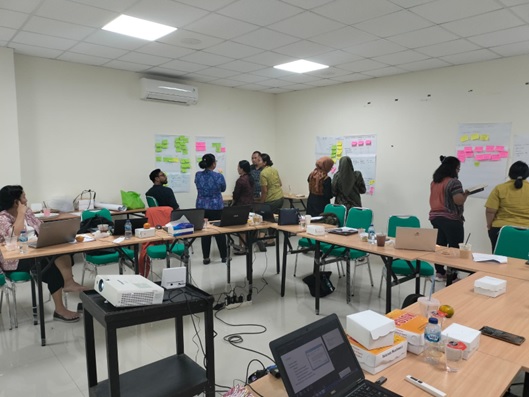Strengthening primary care systems for mitigating health impact of changing climate
The escalating rise in surface temperatures is triggering a surge in severe weather events such as storms, heavy rains, and prolonged droughts. These occurrences have both direct and indirect consequences on human health, amplifying vulnerabilities, morbidities, and mortalities. Many of these adverse health effects could be averted by fortifying primary healthcare systems to proactively counter climate-related health risks. To initiate this crucial endeavour, regions susceptible to climate impacts must proactively pinpoint potential risks, vulnerabilities, and avenues for addressing these challenges at the local level. This insightful information can then be harnessed to develop a robust health adaptation plan tailored to tackle the evolving health repercussions of climate change within primary care settings.
In pursuit of answers to these pressing questions, Udayana University and the Australian National University (ANU) have embarked on a collaborative study focused on cultivating climate-resilient primary healthcare in three distinct districts spanning three islands: Bali, Lombok, and Nusa Tenggara Timur. This pioneering research initiative receives funding from the Collaboration for Knowledge, Innovation, and Technology between Australia and Indonesia (KONEKSI), facilitated by the Department of Foreign Affairs and Trade (DFAT) in Australia. A pivotal milestone in this collaborative effort was the three-day workshop held at Udayana University from September 18 to 20, 2023. During this workshop, the research protocol was meticulously crafted, and the most suitable research locations were identified.
The workshop was inaugurated by Dr. Anak Agung Sagung Sawitri, the esteemed Indonesian Primary Investigator (PI). Dr. I Nyoman Sutarsa provided a succinct overview of the health impacts associated with shifting climates and elucidated the intricate pathways through which climate change can adversely affect human health. Workshop participants engaged in thought exercises, meticulously identifying potential health impacts and risks linked to climate change in their respective regions. Subsequently, Dr. Nyoman Sutarsa outlined the comprehensive research plan, methodologies, and anticipated outcomes. The workshop progressed with small group discussions, enabling participants to pinpoint risks, vulnerabilities, and health impacts specific to each site. These insights were later integrated into the research protocol. The collaborative spirit reached its pinnacle with the signing of agreements between Udayana University and the host institutions of each researcher, cementing their commitment to this vital cause.
Looking forward, the next workshop, slated for December 2023, aims to enhance participants' capacities in qualitative methodology and analysis. It will also facilitate discussions with local researchers to assess the progress of the ongoing research. We harbor the optimistic expectation that these workshops and the overarching research project will catalyse the formation of robust research networks. These networks will continue to delve into the multifaceted health impacts of climate change in Indonesia, contributing significantly to our understanding and preparedness in the face of this critical global challenge.




MEDICAL FACULTY